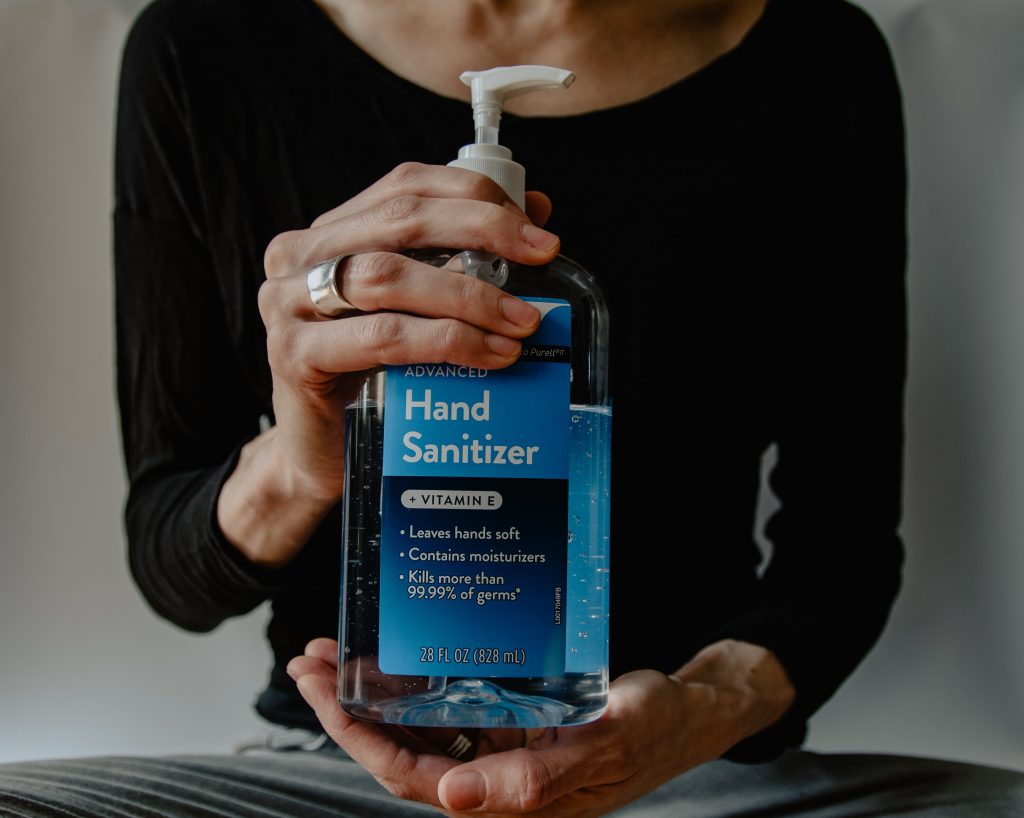Ask Brian is a weekly column by Real Estate Expert Brian Kline. If you have questions on real estate investing, DIY, home buying/selling, or other housing inquiries please email your questions to [email protected].

Question from Kim in Portland, OR: Hello Brian,We are a household of three generations that includes my husband one child, and my mother. We’ve never thought about being “preppers” in the least bit. Now that we are staying at home and my husband is working from home (I can’t work from home), we kind of wish we had done a little more preparation. My mother does most of the cooking and typically went shopping 3 or 4 times a week. We didn’t have many supplies around the house when we were told to stay home and go shopping less often. What do you suggest we do now?
Answer: Hello Kim. Hi Kim, I hope all is well in your home. This isn’t what I typically write about when it comes to DIY but these aren’t typical times. One thing I’ll say is that you don’t need to be a “prepper” to get through this. Although there have been some temporary shortages of some items (mostly hygiene products), there isn’t expected to be any significant food shortages. Crops and harvests of food staples have not been affected. There is some concern that some nations might restrict food exports but the U.S. is still the breadbasket to the world. We aren’t in for any foreseeable shortages. Something to keep in mind is that almost all farmland is far from the big cities where the virus is concentrated. Growing and moving food through the supply chain will remain an essential service that shouldn’t see any impact. So, let’s look at food safety and what you should consider buying when you do go to the grocery store.
Currently, there is no evidence of food or food packaging being associated with the transmission of COVID-19. There have been very few reports of store employees testing positive for the virus (as of March 6, nationally only four infected employees have been reported by the United Food and Commercial Workers International Union; total number unknown). Even before the outbreak, stores had personnel practices that protect against contamination of food. Additionally, most stores are instructing employees to wash their hands more frequently, use hand sanitizer, clean surfaces more aggressively, and practice social distancing. But we have no idea how many might be infected but not diagnosed. And of course, you’re going to be in closer contact with the general public when you go shopping. That means keeping your own social distance. Also, other protective measures are beginning to be used, such as limiting the number of shoppers, sneeze guards at checkout stands, and not allowing reusable grocery bags for the time being. Something else you can do to reduce contact with other people is to shop during early-morning and late-night hours when fewer people are in the store. The bottom line is that other people are the most likely source of infection, not the food.
The first place to start protecting yourself is by wiping down the handle of the shopping cart with a disinfected wipe before you start shopping (many stores are providing wipes). Next, thoroughly wash your hands as soon as you get home from shopping. Do this even before you bring in the groceries or put them away. That will help with any contact you might have had with people outside your home. Some people (but not many) are wiping down purchased goods as they take them out of bags and before storing them in the house. You may want to wash fresh vegetables and fruits before storing them. What is a good idea is washing your hands again after putting groceries away. Other people are washing their hands when they open packages as they are preparing meals. Of course, it’s a good idea to wash frequently while cooking. That and disinfecting y food preparation surfaces should keep everything in your kitchen safe.
So Kim, what should you be shopping for if you didn’t have much for supplies to begin with? The basics should be whatever you normally shop for on a more frequent basis. You might want to just buy in slightly larger quantities without hoarding. Many distributors are working extra hours to keep shelves stocked. The general rule is to stock about three weeks of supplies and then replenish as needed. You probably want to have some canned goods on hand but now is actually a good time for preparing healthy meals. Healthy meals are always best but even more important for maintaining good health during a pandemic. Before you overstock on canned goods, make sure you fill your freezer with fresh foods. Vegetables, meats, and some fruits can be frozen for at least a month. Frozen foods are healthier than canned goods. And before you overstock on canned foods, also go for some common dried foods like dried beans, rice, pasta, and even popcorn for a snack.
When it does come to canned foods, some fruits do better canned than frozen. These are also a good source of vitamin C if you aren’t eating many fresh fruits. Nuts also preserve well on a pantry shelf. Full-grain breakfast cereals are one of the better preserved foods. As are granola and protein bars. Canned tomatoes are good for making sauces to go with the pasta. You may also want chicken, beef, and vegetable bouillon cubes or stock to make soups and sauces. You might also stock some canned soups, vegetables, meats, prepared meals (like ravioli), and baby food.
There are a few non-food supplies you should consider. There’s no reason to think the tap water supply will become contaminated but if you prefer bottled water, you might want to pick up a water purification pitcher so that you don’t need to stock weeks’ worth of bottled water. Also, make sure your first aid kit is fully supplied (including a thermometer). The recommendation is keeping a month’s supply of prescription medicines on hand. You also might want some over the counter remedies for food poisoning or stomach flu. And don’t forget about other consumables like baby supplies and shampoo. Hand soaps are better than hand disinfectants so stocking a little more hand soap is a good idea.
Kim, you don’t need to fill your garage with months’ worth of supplies. This isn’t a nuclear winter. This is about limiting our exposure to other people. The supply chain is working fine. The best thing we can do to help each other is only stock what we need between shopping trips about once a week or less.
Do you have insights for staying home during the coronavirus? Please leave your comments.
Photo by Kelly Sikkema on Unsplash
Our weekly Ask Brian column welcomes questions from readers of all experience levels with residential real estate. Please email your questions or inquiries to [email protected].

Author bio: Brian Kline has been investing in real estate for more than 35 years and writing about real estate investing for 12 years. He also draws upon 30 plus years of business experience including 12 years as a manager at Boeing Aircraft Company. Brian currently lives at Lake Cushman, Washington. A vacation destination, near a national and the Pacific Ocean.